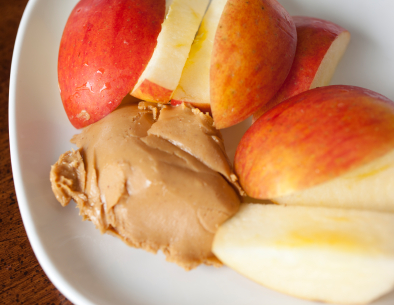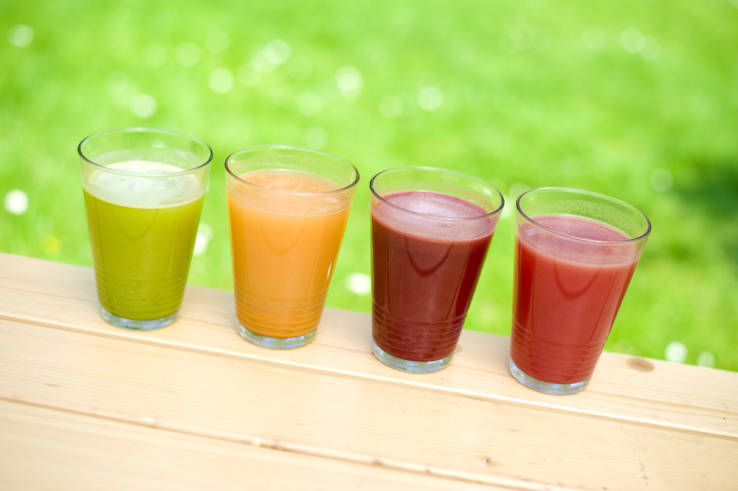The Health Benefits of Drinking Water
The health benefits of drinking water cannot be over estimated. Our bodies require lots of water to function properly and stay healthy.
How often have you heard that you're supposed to drink eight glasses of water each day? Well, there's a good reason why . . . Water plays an enormous role in how our bodies function.
Water composes 55% to 75% of the average adult body and equals about two-thirds of a person's body weight. For an average size adult, this amounts to forty to fifty quarts of water. A human embryo is composed of more than 80% water while a newborn baby has a water composition of 74%. Therefore, the water you drink becomes you!
Since water makes up a large percentage of our bodies, it must obviously have a huge impact on how they function. The benefits of drinking water show up in both the quality and the length of life.
Let's look at why water is so critical to some functions of our bodies.
Benefits of Drinking Water: Digestion . . . Water is necessary for the digestion of food. Digestion involves a chemical process known as "hydrolysis." This process changes proteins, starches and fats into nutrient forms that cells require for their work.
For example, cells cannot use starches directly. Therefore, when our bodies ingest starches, the interaction of starch with water in the body sets up a chemical reaction. This reaction changes the starch into glucose. Cells can readily use the glucose to help them perform their functions efficiently. The digestive process begins in the mouth with the secretion of saliva. Saliva begins the digestion of carbohydrates.
When the food reaches the stomach, water stimulates the gastric glands. The gastric glands then secret pepsin which, in combination with the water, begins to work on the food passed into the stomach.
This process turns the food into a relatively liquid state which then passes into the duodenum or upper section of the small intestine. In the small intestine, enzymes secreted from the gall bladder and pancreas finish the digestive process. At this point, the food has been changed into a watery state.
As the food passes through the small and large intestines, the intestinal walls absorb it. The largest portion of the absorption of this watery solution occurs in the colon. The ability to transform the foods through the digestive process is a major benefits of drinking water.
Benefits of Drinking Water: Detoxification . . .
The kidneys and bladder, skin and lungs all depend on water to rid themselves of poisons and excretions. Kidneys use water rapidly, but the amount they use depends on how much fluid you drink. Every quart of water processed through the kidneys carries one and a half ounces of waste. Kidneys never stop working, even when no water is available. When body water is insufficient for proper kidney function, the body is forced to supply it through dehydration as long as there is life.
The lungs reap their share of the benefits of drinking water also. They play a critical role in riding the body of toxins by taking in oxygen and expelling carbon dioxide. Tiny air sacs comprise the lung wall. These sacs must be moist to fulfill their role. The linings of the nose, throat, trachea and bronchial tubes are also always moist. Because of all the contact with air, the body loses about a pint of water every day solely through exhalation.
Benefits of Drinking Water: Temperature Regulation . . .
On an extremely hot day, we can readily appreciate the cooling benefits of drinking water. Assume that the temperature is 100 degrees. The body wants to stay at 98.6 degrees Fahrenheit. The water you drink absorbs the heat and acts as a very efficient coolant.
To maintain its normal temperature, the body releases water with its store of excess heat through skin pores. When the water reaches the exterior of the body as sweat, evaporation takes place giving a cooling effect to the skin.
On a day with normal humidity, an average sized man will lose about 23 ounces of fluid via lungs and skin without engaging in any unusual activity. On the other hand, a long distance runner can lose as much as eight pounds.
Benefits of Drinking Water: Lubrication . . .
Most people never think of water as a lubricant. In fact, water is the body's basic lubricant. It permits organs to slide against each other; helps bones slip in their joints; and acts as a shock-absorbing agent to ward off injury from blows.
Benefits of Drinking Water: Dehydration Prevention . . .
While most of us recognize the vital role water plays in the maintenance of healthy bodies, most people don't drink enough water. Health professionals estimate that 75% of Americans are chronically dehydrated. In 37% of us, the thirst mechanism is so weak that we often mistake it for hunger. Therefore, it should be no surprise that this deficiency of water should manifest itself in a higher incidence of illness.
Some studies suggest that lack of water, or dehydration, may be a huge factor in illnesses such as hypertension, asthma, allergies and migraine headaches. Even mild dehydration will slow one's metabolism by as much as 3%. Lack of water is the number one trigger of daytime fatigue. Even a small drop of 2% in body water can trigger mild short-term memory loss; trouble with basic math; and difficulty focusing on a computer screen.
Prevention of dehydration is a one of the very important benefits of drinking water.
Since muscles are three-fourths water, you cannot maintain muscle tone without an adequate amount of water. This is another reason why fatigue hits the dehydrated body.
Benefits of Drinking Water: Weight Loss . . .
For many people, weight loss will be one of the most important benefits of drinking water. Many weight loss experts believe that water may be the most important factor in losing weight. Water contains no calories, fat, or cholesterol. It is a natural appetite suppressant, and plays a key role in helping the body metabolize fat.
Without enough water, the kidneys cannot function properly. As a result, they push part of their workload onto the liver. This prevents the liver from operating at peak levels. Metabolizing fat is a primary function of the liver. If the liver is forced to take over part of the workload of the kidneys, it cannot function at peak levels. As a result, the body metabolizes less fat while storing more. This leads to either weight gain or reaching a plateau of weight loss.
Since about 30% of the average person's water intake comes from food, the importance of drinking enough water when dieting takes on added significance. Cutting down on the intake of calories restricts the amount of water available through the food sources. This, in turn, increases the need to raise drinking water consumption.
Conclusion and Recommendations . . .
The health benefits of drinking water are enormous. When your water levels are low, your body reacts in ways that can have profound effects on your health. Low water levels drastically cut glandular secretions, saliva dries up, membranes dry out, you get thirsty. If your water level remains low for a long time, you may experience headaches, nerve damage, inability to concentrate, digestion problems and lack of hunger. These symptoms can disappear very quickly when we restore the right amount of water.
Since contamination in drinking water can inhibit body functions, the use of home water filtration systems will help maintain healthy body functions.
-
How Can You Lose Belly Fat After Pregnancy
Women will generally gain weight after they have give birth. In fact,
-
Tips To Avoid Weight Gain When Eating Out
Have you ever wondered if you can indulg
-
Vegetarian - Not All Or Nothing
Many people contemplate becoming a vegetarian at one pointor anoth
-
Vitamins To Aid In Weight Loss
When you think about weight loss, you will tend to consider only ab
-
Effectuve Cardio For Fat Loss
Having recently ran both a straight 5km
-
Potent Methods To Diets In Daily Life with FBF System
If you have been seriously searching for helpful facts concerning FBF
- DON'T MISS
- How to Lose Weight Quick - Five Simple Instructions to Follow That Have Never Failed
- One Change Can Make All The Difference
- Exercising Outdoors in the Winter
- Mind Over Matter: How Your Attitude May Affect Your Weight Loss
- The Little Known Facts About Weight Loss Pills
- Diet Pills Its Role In Weight Loss
- Fat Burning Foods
- How to Set Realistic Fitness Goals
- Is Water fasting for weight loss going to be assisting you to drop some pounds
- Some Simple Weight Loss Advice




